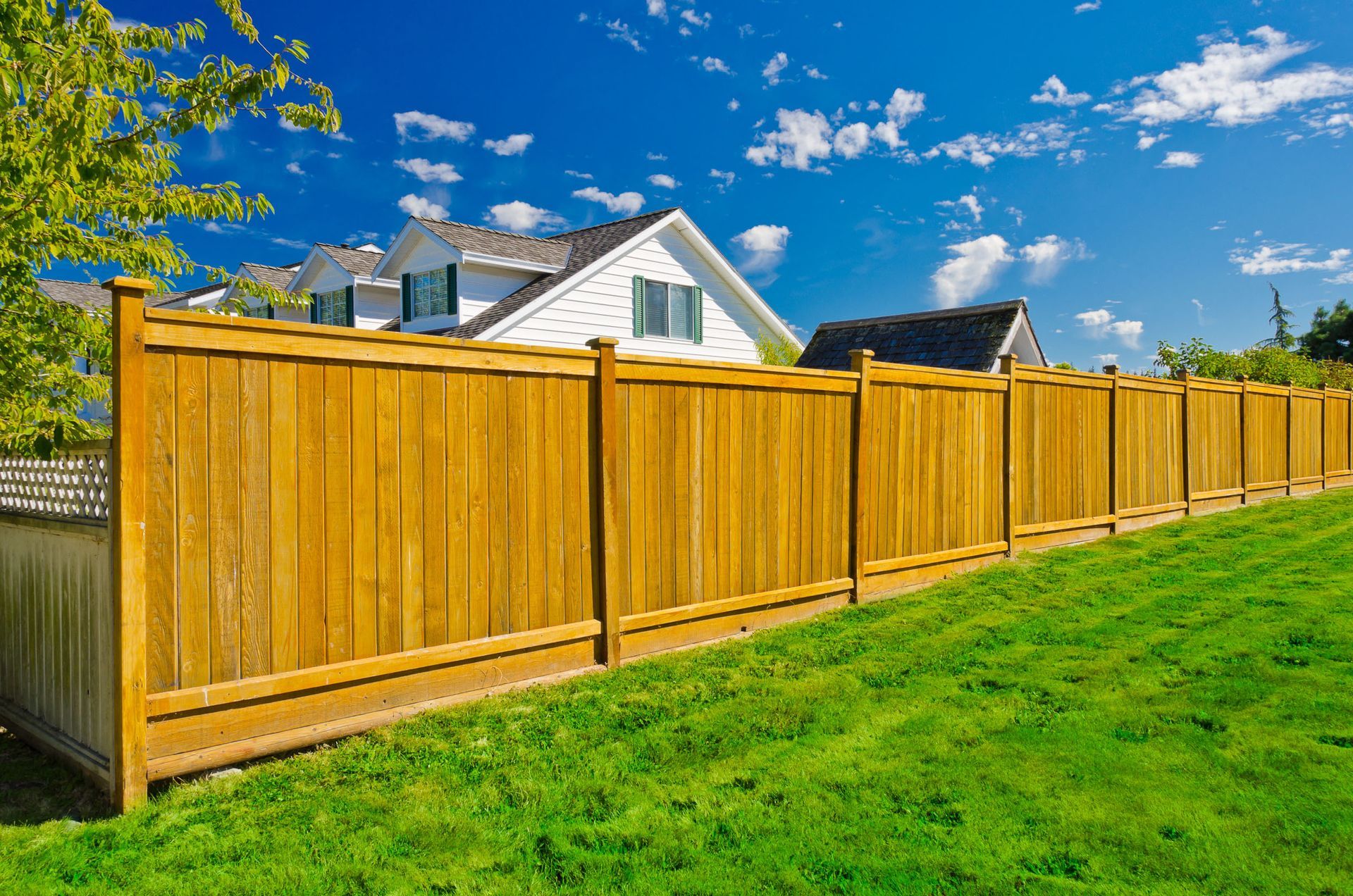All Categories
Featured

Choosing the appropriate kind of fence for your residential or commercial property is a considerable choice that can affect both the looks and performance of your room. Whether you're trying to find personal privacy, security, or just an ornamental feature, there are different factors to take into consideration when picking the ideal fence. Below are some vital considerations to aid direct your decision-making procedure.
- Determine the Objective of the Fence. The very first step in choosing the ideal sort of fencing is to clarify its purpose. Various fences offer different functions, and comprehending your particular demands will help limit your choices. Consider the complying with:
Privacy: If you're looking for personal privacy, a high and solid fence such as timber or plastic will protect against spying eyes from seeing into your lawn. Security: For safety purposes, a strong, high fencing made from light weight aluminum or steel can hinder intruders and offer comfort. Aesthetic Charm: An attractive fence made from wrought iron, light weight aluminum, or picket-style timber can include charm and visual appeal to your property. Family Pet or Pet Containment: If you need to have pet dogs or livestock, a tough fencing like chain link or wood may be needed to avoid them from leaving. 2. Think about the Product. Once you've established the fence's key function, it's time to choose the material. Each sort of material includes its very own collection of difficulties and advantages. Here are some usual products to consider:
Timber: Wood fences are functional and adjustable, offering personal privacy and a timeless appearance. They're optimal for country homes or typical homes yet require normal upkeep to stop warping, bug, or rot infestation. Vinyl: Plastic fences are low-maintenance, durable, and available in a selection of designs. They won't fracture, warp, or fade, making them a great option for those who want a long-lasting, problem-free fence. However, plastic can be a lot more costly in advance than wood. Aluminum: Aluminum fences provide a smooth, contemporary appearance and are durable, rust-resistant, and need very little maintenance. They generally don't offer as much personal privacy as wood or plastic, as the slats are usually spaced apart. Chain Web link: Wire mesh fence are typically utilized for safety or to have family pets. They are durable and economical, however they don't offer much personal privacy or visual appeal unless you include slats or privacy screens. 3. Consider the Climate and Upkeep Requirements. Your region's environment can considerably impact the life-span and maintenance requirements of your fence. If you live in a location with high moisture or constant rain, products like timber may require added care to avoid rot or mold and mildew growth. On the other hand, vinyl and light weight aluminum fences are resistant to the elements and need much less upkeep.
Additionally, consider the quantity of time and effort you want to dedicate to fencing maintenance. Timber fences need regular staining or paint to preserve their appearance, while vinyl and light weight aluminum call for much less maintenance.
- Consider Durability and Lifespan. Consider for how long you want your fence to last. If you're trying to find a fencing that will last for decades with little upkeep, vinyl and aluminum are excellent selections. While timber fences can last 10-20 years with correct care, they might not endure the test of time as well as various other products.
Likewise, consider your spending plan. Products like wood and chain link have a tendency to be more affordable upfront, while vinyl and aluminum tend ahead with a higher initial price but offer long-term longevity.
- Suit the Fencing to Your Residential Or Commercial Property Design. The type of fence you select need to match the overall feel and look of your building. An appropriate fencing can boost your home's visual allure, while an inadequately picked fence can detract from it. For circumstances:
Standard Houses: A traditional wood picket fence or a functioned iron fence functions well with older, extra standard homes. Modern Houses: For a modern appearance, smooth materials like light weight aluminum or vinyl can match modern architecture. Rural or Farm Residences: A wooden or cable fence might be suitable for rural homes or ranches, where practicality is equally as important as looks. 6. Check Local Laws and HOA Guidelines. Prior to making your decision, examine your regional zoning policies and any kind of HOA (Homeowners Organization) guidelines to make certain that your preferred fencing abide by elevation constraints, product requirements, and other regional legislations. Some locations have certain regulations concerning the appearance of fencings, particularly in household neighborhoods.

Verdict. Picking the ideal fence for your property requires careful factor to consider of your requirements, budget, and the design of your home. Whether you're focusing on privacy, security, or aesthetic appeal, there's a fence product and layout that will certainly suit your needs. By thinking about the aspects described over, you can make an educated decision and select a fence that will improve the functionality and elegance of your building for several years ahead.
Latest Posts
Specialist Commercial Roofing Solutions in North Platte, Nebraska
Published en
2 min read
Find Affordable Auto Repairs with Montclare’s Limited-Time Service Specials
Published en
1 min read
Boost Your Home's Exterior with Weathercraft's Home siding Solutions
Published en
1 min read
More
Latest Posts
Specialist Commercial Roofing Solutions in North Platte, Nebraska
Published May 27, 25
2 min read
Find Affordable Auto Repairs with Montclare’s Limited-Time Service Specials
Published May 26, 25
1 min read
Boost Your Home's Exterior with Weathercraft's Home siding Solutions
Published May 25, 25
1 min read